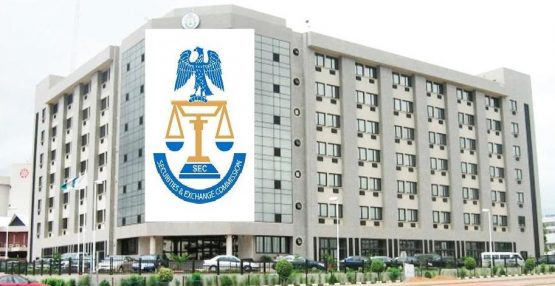The Securities and Exchange Commission (SEC) has said Collective Investment Schemes (CIS) are part of the market system that allows investors to diversify their risk via different angles besides going straight to the companies to invest.
The director-general of SEC, Dr. Emomotimi Agama disclosed this during an interaction with reporters in Abuja.
This is as Collective Investment Schemes increased to over N3 trillion in 2024.
He said, “in the collective investment schemes, you get a bucket of shares and ask people to invest. Therefore, if you are investing through a collective investment scheme, you probably will be investing in 10 companies via one route as different from going to invest directly in any company.
“It reduces your risk, it diversifies your potential and of course takes care of the ups and downs in the market whenever it does exist and it is for us a very good area for Nigerians to invest in because when you do not understand it, do not go into it. With a collective investment scheme, you do not need to understand it because someone is there to understand it for you and invest on your behalf, understanding the vagaries of the market, its dynamics and how it runs.”
The SEC DG disclosed that beyond the CIS, the capital market aided in the development of the economy through the recapitalization exercise of banks by the Central Bank of Nigeria.
Agama also disclosed that apart from the banks, other institutions also came to raise capital from the Capital Market.
Agama stated that within the period under review, there were other developments in the market including many government bond issuances geared toward infrastructural development, adding that there is no economy that can actually grow without infrastructure.
He stated that it has become very critical that Nigerians understand the functions and values of the Capital Market as the current management has deployed various initiatives to make the capital market attractive to Nigerians.
Agama disclosed that with the passage of the Investments and Securities Bill 2024, which is currently awaiting presidential assent, the capital market would certainly do more as a driver of the economy.
We’ve got the edge. Get real-time reports, breaking scoops, and exclusive angles delivered straight to your phone. Don’t settle for stale news. Join LEADERSHIP NEWS on WhatsApp for 24/7 updates →
Join Our WhatsApp Channel



![SEC [EDITORIAL] The World Against Trafficking In Persons](https://leadership.ng/wp-content/uploads/2022/08/human-trafficking-120x86.webp)

![SEC [EDITORIAL] The World Against Trafficking In Persons](https://leadership.ng/wp-content/uploads/2022/08/human-trafficking-360x180.webp)




